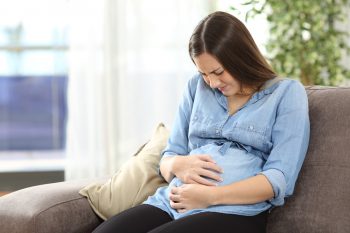The question “Do miscarriages hurt?” is a common concern for many people. In this article, we will delve into the physical and emotional aspects of miscarriages, providing valuable information on their symptoms, causes, and treatment. We will also discuss ways to support someone going through this challenging experience.
Understanding miscarriages: what are they?
A miscarriage is the spontaneous loss of a pregnancy before the 20th week. It’s estimated that about 10-20% of known pregnancies end in miscarriage, with most occurring during the first trimester. Miscarriages can be physically and emotionally painful experiences for those affected.
Physical pain: symptoms and causes of miscarriages
The physical pain experienced during a miscarriage can vary depending on the type and stage of the pregnancy. Here, we’ll explore some common symptoms and causes associated with miscarriages.
Common symptoms of miscarriage
Some common physical symptoms of a miscarriage include:
- Vaginal bleeding or spotting
- Abdominal cramping or lower back pain
- Fluid or tissue passing from the vagina
- Loss of pregnancy symptoms, such as nausea and breast tenderness

It’s important to note that some of these symptoms can also occur in healthy pregnancies. Consult a healthcare provider if you have any concerns.
Causes of miscarriage
Several factors can contribute to a miscarriage, including:
- Chromosomal abnormalities in the developing embryo

- Maternal health conditions, such as uncontrolled diabetes, thyroid disorders, or autoimmune diseases
- Uterine abnormalities that interfere with proper implantation and development of the embryo
- Lifestyle factors like smoking, alcohol consumption, and drug use
Emotional pain: the impact of miscarriage
The emotional pain that accompanies a miscarriage can be overwhelming for many women and their partners. Common emotions experienced after a miscarriage include grief, guilt, and a sense of isolation. It’s crucial to acknowledge and validate these feelings, allowing the grieving process to unfold naturally.

Supporting someone experiencing a miscarriage
Offering support to someone who has experienced a miscarriage can be challenging. Here are some ways to help during this difficult time:
Be present and listen
One of the most significant ways to support someone who has experienced a miscarriage is by being present and listening. Allow them to express their emotions and provide a safe space for them to grieve.
Offer practical support
Help with everyday tasks like cooking, cleaning, or running errands can provide much-needed relief during this difficult time.
Encourage self-care
Gently encourage your loved one to prioritize their physical and emotional well-being, whether by suggesting a relaxing activity, accompanying them to a therapy appointment, or simply checking in on how they’re feeling.
Offer ongoing support
Grief doesn’t have a set timeline, and the healing process can take time. Make an effort to check in with your loved one regularly, even after the initial shock has subsided.
In conclusion, miscarriages can be physically and emotionally painful experiences for those affected. Understanding the various aspects of miscarriages, such as their symptoms, causes, and treatment, can provide valuable information for those who have experienced this loss or want to support someone going through it.
By being present, offering practical support, and encouraging self-care, you can help your loved one navigate the complex emotions that accompany pregnancy loss



